Collection of interesting tech stories from the second quarter of 2022 that you probably missed.
Our co-founder, Michał Błędowski, posts a #TechBrief (short collection of relevant tech stories) every Monday on LinkedIn. We have created a summary of all the latest, most interesting Tech news from the industry, that took place in the second quarter of 2022.
If you want to stay up to date on what's going on in the tech industry, including crucial cybersecurity stories, social media, innovations and finance connect with Michał on Linkedin.
Jump to any #TechBrief you like:
- 20.06.2022
- 13.06.2022
- 06.06.2022
- 30.05.2022
- 23.05.2022
- 16.05.2022
- 09.05.2022
- 02.05.2022
- 26.04.2022
- 19.04.2022
- 11.04.2022
20.06.2022
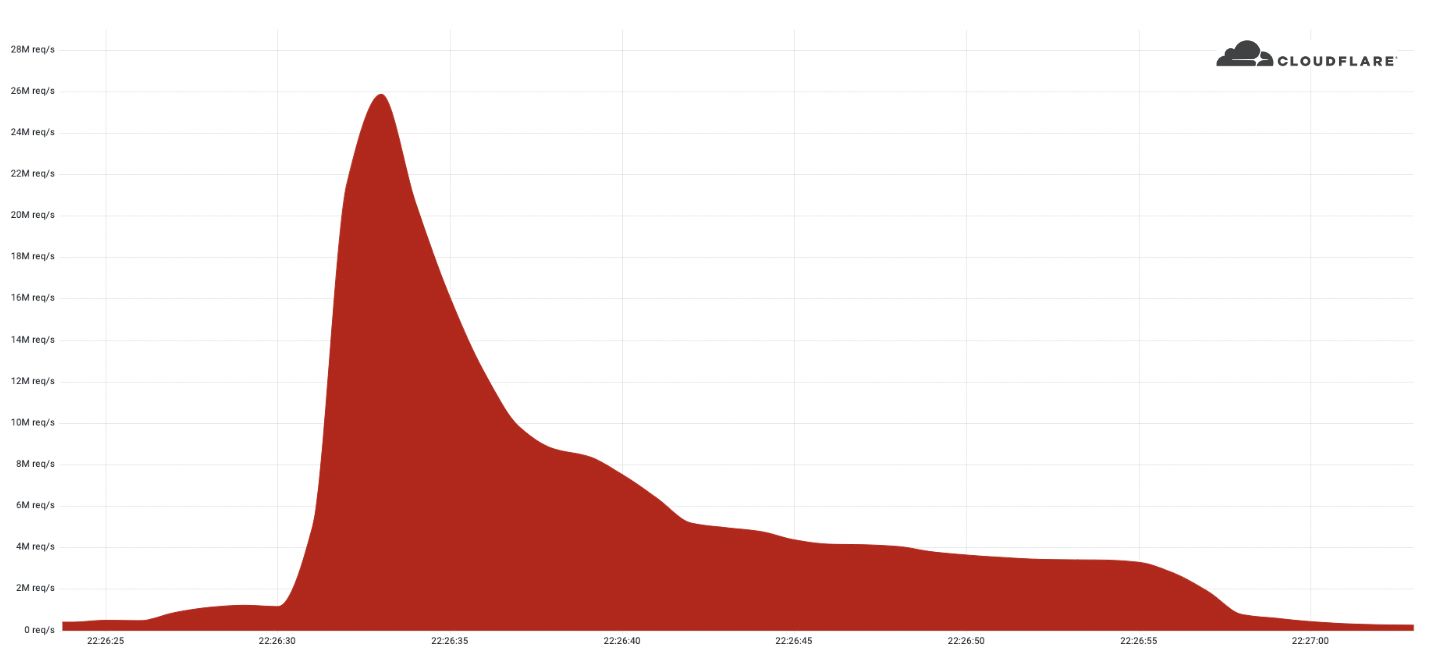
Adobe is testing a freemium version of Photoshop in Canada. It started out with very limited functionality, as a way for graphic designers to share their work with others and collect feedback and change suggestions.
Since then, Adobe has kept adding new functionalities to the freemium version, and they might roll it out globally, but there is no declared timeline for this.
Crypto scammers are targeting people on LinkedIn, and they’re very patient about it. First, they’ll tell you about all the money you can make from investing in crypto.
Next, they get you to invest on a legitimate platform. Over several months, they keep building trust. Finally, once they feel confident, they direct you to a fake website that they control, and then they steal your money.
LinkedIn is actively working on the problem, but they also said “trying to identify what is fake and what is not fake is incredibly difficult.”
Apparently, they removed over 32 million fake accounts in 2021, and they have multiple safeguards always working to protect people from being scammed on the platform.
DDoS attacks keep getting stronger. The previous record was 17 million requests per second, recorded in August 2021.
This new DDoS attack was unusual because it happened over HTTPS, which is more expensive than a HTTP attack. Plus, it was generated with a powerful botnet of hijacked virtual machines from cloud providers and powerful servers (normally, botnets are made from weaker IoT devices).
The attack targeted websites using the free Cloudflare plan, and Cloudflare’s automated DDoS protection system quickly caught it and mitigated it.
This shows how important it is to have powerful, automated tools to protect online properties. A human operator would’ve never caught or resolved an attack like this as quickly as an automated system.
13.06.2022
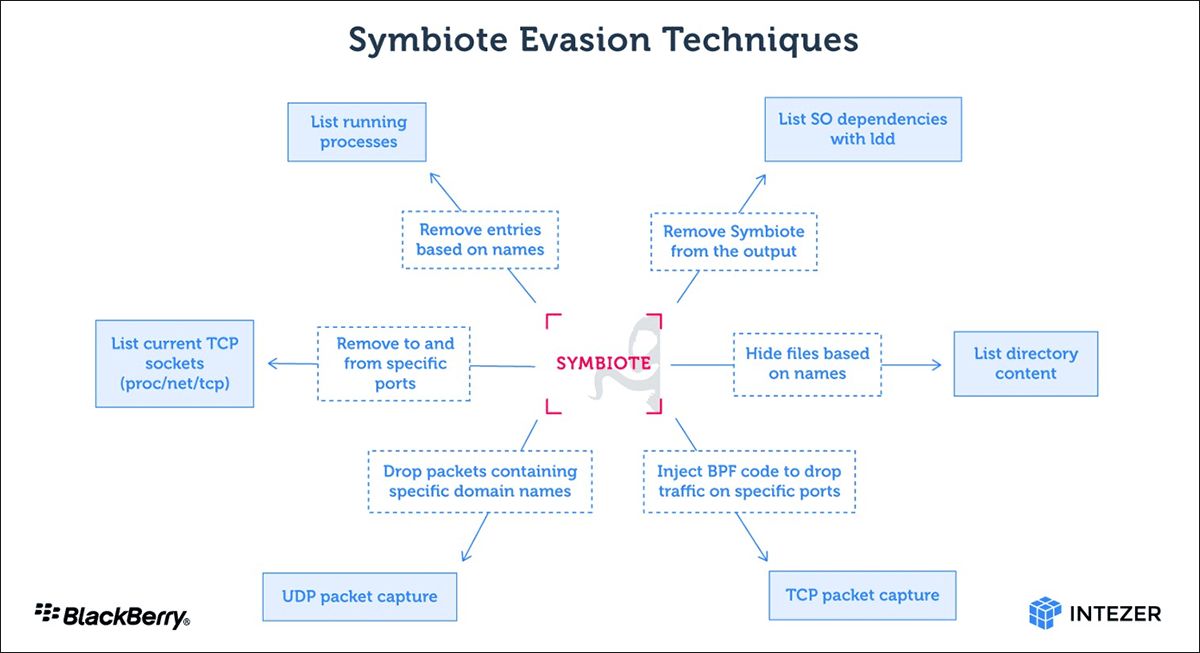
Symbiote is a powerful, never-detected backdoor into any Linux system. It literally works like a parasite – it starts with a library that loads into every process in your system.
From there, it can harvest credentials, enable rootkit functionality, and enable remote access to device. It was first detected in November, and for now it targets financial institutions in Brazil.
Nobody knows if Symbiote is widely active across many Linux systems, but it’s definitely a possibility given that Symbiote is basically undetectable, and can remove any proof of infecting a system.
Microsoft just became the cool kid on the block, up there with AirBnB when it comes to giving (potential) employees exactly what they want.
The company will show pay ranges in all US job listings moving forward. This is a very exciting move that might lead the whole IT job market into greater transparency.
That’s not all. Microsoft will also remove noncompete clauses from their US employee agreement, and bring an outside company to audit if their workers’ rights are met across the board.
A Google software developer just got suspended. He believed that an AI model he was testing, LaMDA, was sentient and he got a bit too excited about it.
Google representatives say that there’s a mountain of proof that LaMDA is not sentient at all, so the answer is no, AI isn’t sentient yet. However, this story brings to light an important problem.
Pattern-matching models like LaMDA aren’t intelligent, but they are great at faking intelligence. This is because they have mountains of text data to use.
Current AI systems, even neural nets which supposedly mimic how the brain works, are still just machines that can mindlessly generate content based on pattern recognition.
But if even a Google developer can get fooled by them, it means that the general public is at huge risk of being manipulated through malicious use of AI systems.
06.06.2022

The world’s most powerful supercomputer, The Frontier, runs on AMD Epyc CPUs and is powered by Hewlett Packard Enterprise's (HPE) Cray EX platform.
It’s the first real exascale system – meaning that it can perform a billion billion (a quintillion) operations per second.
It can hit 1.1 exaflops (floating point operations per second), whereas the Japanese contender (Fugaku) performed at 442 petaflops.
The Frontier is not just the most powerful but also the most efficient supercomputer, which is WILD. It runs at 52.23 gigaflops per watt.
With a bit of new hardware applied to conventional cable infrastructure, a new system demonstrated data transmission of 1.02 petabit per second over 51.7 km.
If implemented, this system would get humanity ready for Beyond 5G, a term used to describe the explosion of data exchange after wide adoption of 5G.
Epic joins Volvo in a partnership to use Unreal Engine, the most popular video game graphics engine, to create the HMI (Human-Machine Interface) for a new generation of Electric Vehicles from Volvo.
Epic will support Volvo by building a platform for Volvo designers to build safe, beautiful interfaces for vehicles.
It’s really fun to see such partnerships in the world. Who would’ve thought 20 years ago that a leading gaming company would be partnering with a leading car manufacturer to make cars safer?
30.05.2022

- ⚠️ ⚠️ ⚠️Update Zoom IMMEDIATELY
Critical bug discovered and fixed in Zoom. Hackers can install malware on your device through your outdated Zoom client. Update your Zoom client immediately if you’re not on the latest version!
New type of hacking attack discovered – account pre-hijacking (thanks to a study funded by Microsoft Security Response Center).
Hackers can take control of an account before it’s created. Then they wait until the account is filled with personal data, and lock the account owner out.
Hacker social engineered their way into stealing employee data from the American telecom giant, Verizon. He pretended to be from internal support, got an employee to provide remote access to their computer, and installed a script to steal the data.
He called Verizon employees idiots, and is asking for $250,000 to return the data.
23.05.2022

Creator of LaTeX and TLA+ is a bit disappointed that programmers are afraid of maths.
His opinion is that most programmers brush through maths in college, learn the necessary basics and then just forget about it.
Advanced maths may not be necessary for all software development, but there are many areas where mathematical thinking is critical to solve problems efficiently.
What do you think? Should programmers learn more maths?
A company wants to back-up all of our knowledge in datacenters on the Moon.
The first tiny datacenter will likely be sent by the end of 2022 as proof of concept.
From there, the company has a roadmap of how to develop the system.
Why the Moon? Because Earth is not really safe, as evidenced by the flooding of the Global Seed Vault (a back-up of critical seeds).
It’s easy to criticize this idea, but if we’re going to be a spacefaring species, this is the type of stuff we need to start thinking about.
Last week, I mentioned the story of a top Machine Learning researcher that left Apple due to their “3 days in-office" inflexible work policy.
The researcher has already landed a job at Alphabet’s DeepMind, and Apple is no longer forcing the 3-day in-office rule.
Apple representatives stated that they’re pushing the topic away for now.
For an industry so focused on disruption and innovation, tech executives have a really hard time understanding that workers in tech don’t want to be held by the hand anymore.
Flexibility is the new normal. Accept it and implement it, or enjoy having much less candidates for your jobs than flexible companies.
16.05.2022
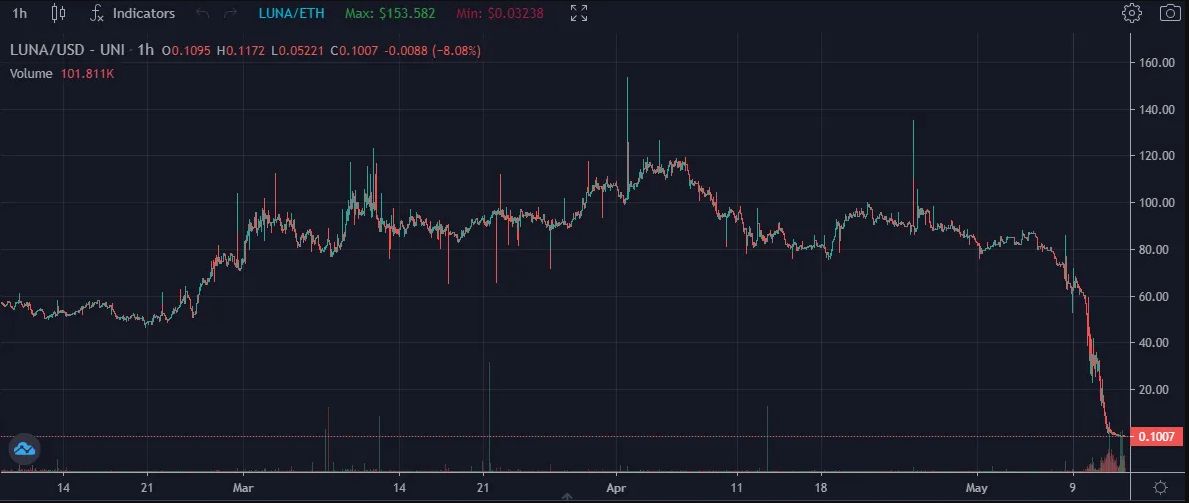
The Economist offers an interesting and rational take on the current tech / crypto market downfall:
--- This is not another dotcom crash, back then companies had zero fundamentals (good revenues / business models). Modern tech companies have more solid bottom lines, even those that crash.
--- Established companies are mostly A-OK (Salesforce, Intel, IBM, Adobe, Oracle, Alphabet, Amazon, Apple, Meta, Microsoft).
--- The stocks hurt the most are hyped-up start-ups, like Robinhood (lost 80% of value since going public in July 2021), or Uber ($6 billion loss in the first quarter of 2022 alone).
--- Pandemic slowdown and Ukraine war have changed investor outlook on the future.
--- Bitcoin was below $26,000 just a few days ago, down from almost $60,000 half a year ago. The next 4 biggest coins have lost on average 70% in value. Sales on one of the big NFT marketplaces, OpenSea, has dropped by more than half.
--- All in all, we’re seeing multiple small tech bubbles bursting, but digital technology continues to eat the world and it’s still very, very hungry.
Luna might be the biggest crash in crypto history. The price of Luna went from $116 in April to a single penny ($0,01).
But it’s not the full story. Luna is a coin based on the Terra blockchain. Terra offered UST, which also crashed. UST is a stablecoin (in theory, 1 UST should always be worth 1 USD).
UST creators sold UST and promised buyers 20% interest on their investment. People liked this idea, and invested over $14 billion into UST through this specific mechanism, called the “Anchor Protocol”.
On May 7, one big transaction led to many investors trying to sell their UST. Ultimately, this destroyed the value of UST. Instead of staying at $1, it dropped to less than $0,20.
This whole situation wiped $15 billion from the crypto market. Many people lost their savings.
Finally, people are questioning the crypto hype (especially around stablecoins), and regulators are becoming interested. Maybe this will inspire some lasting change in the crypto market.
09.05.2022

- 🤝🤝🤝 Remote Work
Apple’s chief of machine learning leaves because Apple is trying to get people to come back to the office. Multiple Apple employees created an open letter to their bosses, criticizing Apple’s new 3-day-per-week in-office requirement.
AirBnB had 800,000 people visit their careers page after they announced that everyone in their company can work from any place in the world.
It’s clear that workers in tech demand flexibility.
If you let your employees work 100% remotely, you’ll find many more potential candidates for your open jobs.
Apple’s chief of machine learning leaves
Apple employees criticize in-office requirement
AirBnB mass visits to career page
Some positive news from Amazon for a change.
Amazon is fighting in court against 3 big fake review companies, which altogether had more than 350,000 reviewers working for them.
Fake reviews are a plague and it’s good to see that Amazon can recognize this, and fight against it. Obviously, it’s in their best interest to make sure people aren’t lied to on their platform.
Upgrade your career and start becoming a web developer with Azure Cloud Advocates!
The Azure Cloud Advocates team provides full, beginner-level curriculums for you to learn new skills.
And it’s not just web development! They’ve also done: -Machine Learning for Beginners -IoT for Beginners -Data Science for Beginners
02.05.2022
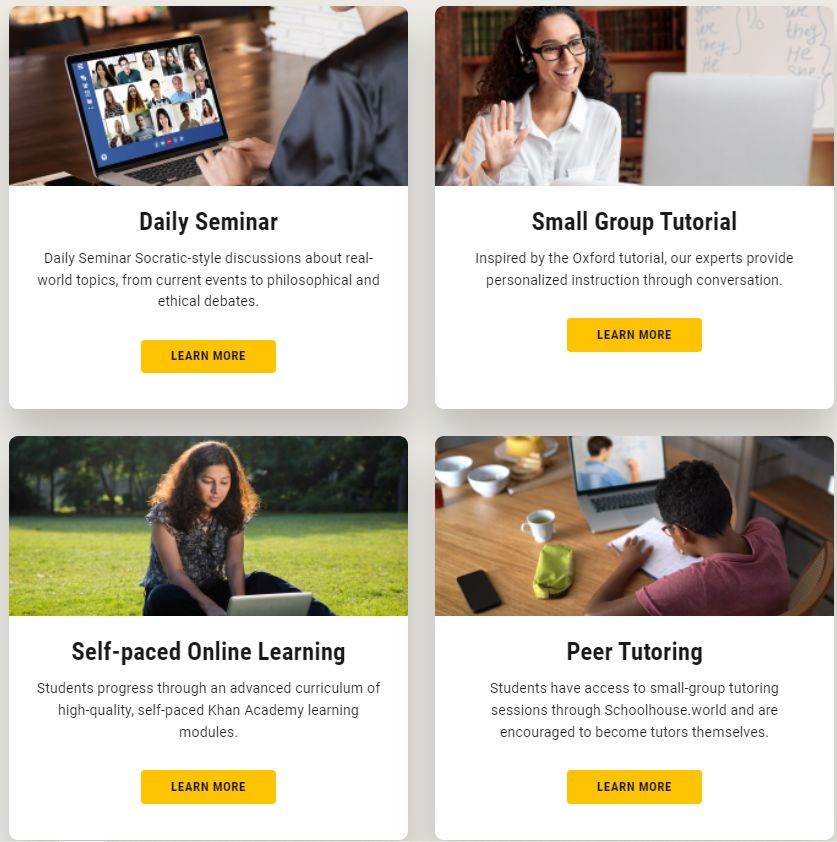
I’ve always been a fan of Khan Academy.
If you don’t know, it’s an open project with world-class educational materials for kids, teenagers and college students.
Now, it’s morphing into an even more powerful project – the Khan World School, backed by the Arizona State University Preparatory Academy.
Essentially, students of Khan World School will be able to learn in an incredibly agile way, somewhat similar to high-class tutoring, but in a digital environment.
Really excited to see if this project will spread across the world.
Public education DESPERATELY needs innovation!
Google just expanded their options for removing your data from search results.
If you don’t know, Google has a special form where you can ask them to hide search results with your sensitive data.
So far, it’s been limited to data like bank account numbers, or credit card numbers, but now it’s being expanded to data like phone numbers, emails and even physical addresses.
I’ve tried this feature before, it’s nothing amazing but it’s good to see privacy-first features being expanded.
Maybe privacy is starting to be taken seriously by Big Tech?
Another batch of insider Facebook documents has just dropped.
With almost 40 documents, there’s a lot to read here, mostly about the ranking system (the algorithms that decide what you see on Facebook’s News Feed).
The documents suggest that Facebook’s employees don’t really know how the ranking system works, and aren’t sure what effect it has on users.
To us, normal people, it’s clear what the effect is.
We’ve all had those friends or family members who, seemingly all of a sudden and at the same time, started sharing antivaxx or q-anon propaganda online and in person.
We’ve all spent time arguing on Facebook, and then wondering “what the hell is wrong with me?”.
You might not admit it, but I know you did it. Facebook is perfectly designed to make us rage and engage in flame wars. It’s the single best way to keep people on the platform.
So, it’s great to see that the mysterious workings of Facebook are being uncovered. Perhaps it’ll lead to some positive change.
26.04.2022

Bug bounty programs – they’re great! Why don’t you have one yet?
USA’s Department of Homeland Security initiated a bug bounty program in December 2021.
To date, hackers have found 122 vulnerabilities in their system.
27 of those vulnerabilities were critical.
This is actually not the first time they did this – there have been several other DHS bug bounty programs, a notable one being “Hack the Pentagon”.
This is the type of story that makes me happy to be a citizen of the European Union.
The EU has already passed the DMA (Digital Markets Act), which should make digital markets a bit more equal for all.
Now, they’re moving along with the DSA (Digital Services Act).
The DSA suggests strong laws that will force tech companies to get better at moderating content on their platforms.
It also deals with things like Dark UI Patterns, with true-to-life statements that “canceling subscriptions should be as easy as signing up for them.”
I think we can all agree, I definitely do!
Let’s not forget – among other things, the EU is also fighting for our right to repair our devices, uniform chargers for all mobile devices, and much more.
It’s good to see people in positions of power actually trying to make life better for all of us in the working class.
- 🤖🤖🤖 Bug of the year
Has your development team updated Java yet? They should!
The programming language Java (versions 15 to 18) had a huge security vulnerability.
It was reportedly first noticed in November 2021.
Oracle, Java’s developers, patched the vulnerability this month.
The issue was described by one researcher as a “psychic paper”.
It’s a term from the “Dr Who” TV series, and it means a universal ID card.
Hackers could easily take control of encrypted communications, authentication tokens, code updates and more.
Java apps with the vulnerability wouldn’t even show that anything wrong is going on.
19.04.2022
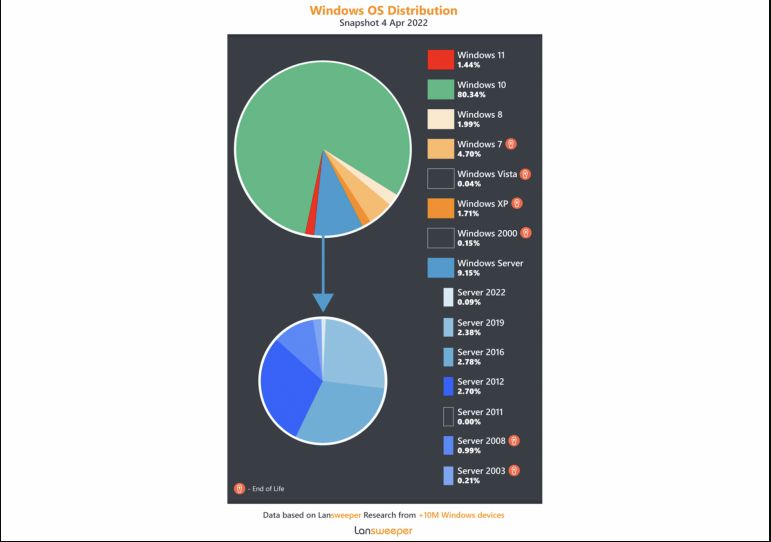
Almost all Windows users completely ignored the option to upgrade to Windows 11.
A new study shows that Windows 10 still dominates, with over 80% of Windows users.
Windows 11? Less popular than Windows XP, with only 1,41% of Windows users.
Yes, you read that correctly. The 2001-released Windows XP is actually more popular (1,71% user share) than the newest version of Windows.
This is something you never see. Issues with modern software products (especially as huge as Jira) are resolved in hours, maybe a day.
Atlassian just had an outage that lasted more than a week. The consequences are still being fixed.
Atlassian handled PR and user communication very poorly. Over 400 accounts, some as big as 4,000 seats, didn’t get much information or support from the company during that time.
What caused the outage? Oh, just a faulty execution of a script that had “permanent delete” privileges and received a wrong list of user IDs to clean, so it cleaned out active user accounts.
This couldn’t have come at a worse time. Atlassian is in the process of retiring its Server product in favor of a new Cloud product.
Even though the outage hit less than 0,18% of their customer base, this situation has definitely reduced the trust that people had in Atlassian products.
- 💸💸💸 Elite lawsuits
Elon Musk did a no-no, because he waited too long to admit that he bought a lot of Twitter shares.
First, he bought as much as he could at a lower price. He waited over a week and only then made his purchase public, which drove the share price up by 10$.
Twitter shareholders are now pursuing legal action against Musk because he only made himself richer, and didn’t help those guys get more $$$. After all, they could’ve bought more shares at a cheaper price, too!
Oh, the injustice. Oh, the drama! It’s so sad to see the elites miss out on stock market opportunities.
11.04.2022

Over 218 dangerous NPM packages are out to steal personal information from Azure services.
These malicious packages rely on typosquatting. They have names similar to popular packages, so developers can easily install them by mistake.
Researchers that found these packages stated: "The attacker is relying on the fact that some developers may erroneously omit the @azure prefix when installing a package. For example, running npm install core-tracing by mistake, instead of the correct command – npm install @azure/core-tracing."
Exciting new tech releases
OpenAI just opened up the waitlist for Dall-e-2, an AI system that creates images based on text input.
Also, the long-awaited Unreal Engine 5 is finally available to download for anybody who wants to use it:
In just 11 months, Intel’s CEO Pat Gelsinger earned 1,711 times as much as the average Intel worker.
Executive pay has been rising in the United States. Apple’s Tim Cook earned 1,447 times as much as an average Apple worker in 2021.
Not to peek into other people’s wallets, this story is fascinating simply because of the astronomically large difference in earnings between workers and their CEOs.
The Tech Oversight Project wants to hold Big Tech accountable when lawmakers don’t. Such occasions are aplenty.
So aplenty, in fact, that the Big Tech Wiki created by TOP already has almost 100 records of Big Tech wrongdoings, even though they just created it.
If you were feeling optimistic this week (which would be weird given the state of the world at the moment), this will get you frowning again.
Summary
Did you find any stories that you missed in the last months? We truly hope so!
For weekly updates with stories you might miss amidst the news noise, connect with Michał Błędowski on Linkedin.
Read more:
➤ All You Need To Know About Low-Code And No-Code
➤ Cybersecurity - Your New Priority. Basic Guide to Cybersecurity in Online Business
➤ Executive Primer On Metaverse—What Is It? Should You Invest?










 Angry Nerds (Poland)
Angry Nerds (Poland) Angry Nerds (USA)
Angry Nerds (USA) Angry Nerds (Canada)
Angry Nerds (Canada)



